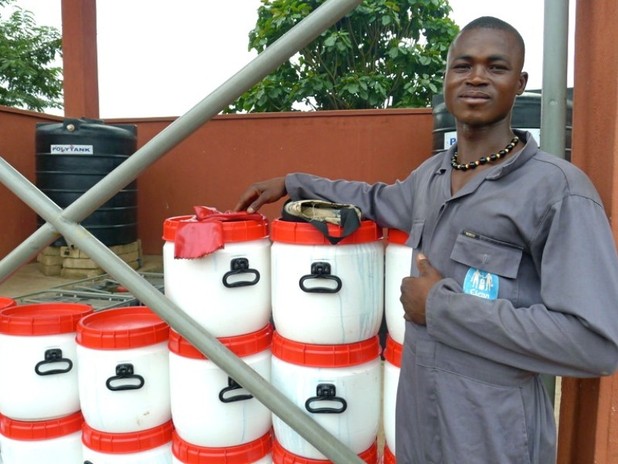February 22, 2012
A little over a year ago, Unilever, Water and Sanitation for the Urban Poor (WSUP), and IDEO partnered to explore different low-cost sanitation options in Ghana, and settled on a rental stand-alone toilet and cleaning service. In this second phase of the project, IDEO.org is tasked with building out the brand strategy of the toilet service, currently called “Clean Team.”
Hooray for the start of a new project! The sun is shining in our lovely new San Francisco space, and it’s a perfect time to dive into a project on all things unmentionable.
A little over a year ago, Unilever, Water and Sanitation for the Urban Poor (WSUP), and IDEO partnered to explore different low-cost sanitation options in Ghana, and settled on a rental stand-alone toilet and cleaning service. IDEO got as far as designing the basic toilet system and service component, and Unilever and WSUP have been piloting the project with about 50 families in the city of Kumasi, Ghana.
In this second phase, we are tasked with building out the brand strategy of the toilet service, currently called “Clean Team.” This idea of “branding” is really interesting as it seems to be a trendy topic these days, yet it is also a term that often seems to elude precise definition. In our case, we are designing a brand strategy from the ground up, for a user group very different than ourselves. Indeed, our biggest challenge as we work from the field to test brand prototypes with potential users, will be to develop this empathic sensibility—to be able to put ourselves into our customer’s shoes, working to understand their real needs and desires.
As a branding expert here at IDEO told us, an initial brand identity relies heavily on gut instinct and subjective decision-making. This means that it will be that much more critical that we the IDEO.org team are able to internalize the identities of our users, so that we can make those gut calls with confidence, even back at the office.
As we prepare to leave for field research in Kumasi, we are wrestling with a series of questions, many of which will have to wait for an answer from the field. For instance, as we plan out our interview schedule, we’re unsure which research techniques will work, and which will get lost in translation. Not knowing for certain how much English our interviewees will speak, but being confident that the cultural connotations of things like existing brands and celebrities will be different, it’s of even more crucial importance that we are able to probe into why people feel the way they do about certain products or figures.
If Lux soap or Guinness Foreign Stout beer are considered luxuries in Ghana, what is it exactly about them that makes them luxuries, other than a higher cost point? Is there something about the extra time it takes to pour a Guinness that connotes luxury, or something about the differentiated packaging of Lux that turns it into a status symbol? Diving into these kinds of psychological intricacies will be imperative if we are able to get a handle on the drivers of good branding in Ghana, and of the most effective methods of rapidly scaling up this innovative new product and service.
The next time we talk, we’ll be up to our knees in it (no pun intended) from our base in Kumasi, Ghana. 10,000 households by 2013, here we come!









